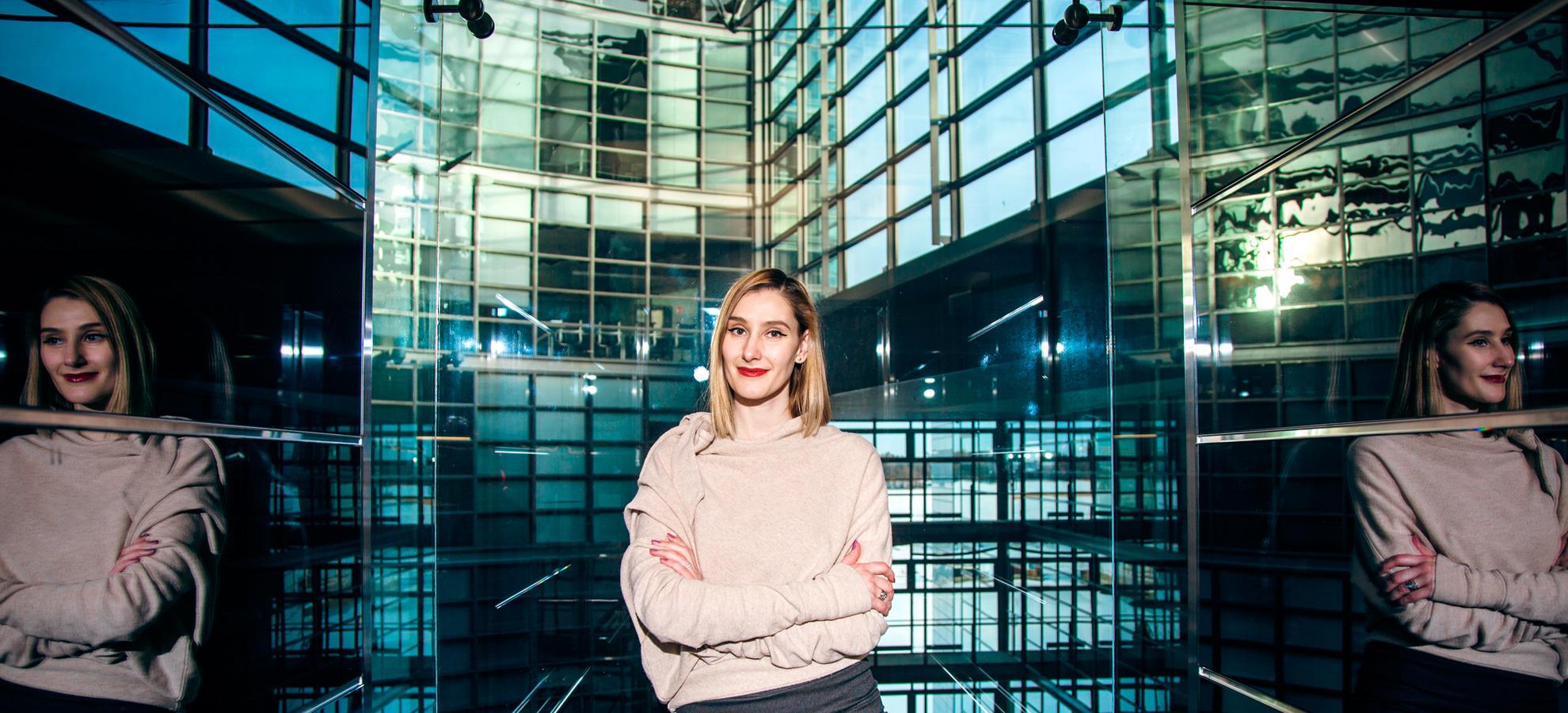
1. Find your own path in Helsinki in terms of studies and employment.
When in a new country, you should find a path that suits you best. I wanted to study and work at the same time, because I had no networks and roots in Finland.
I was first drawn to Finland by music. I was a big fan of the rock band HIM. When I was a university student in the south of Russia, I heard that the band usually played a New Year’s gig at the Tavastia Club in Helsinki. I came to Finland with a friend and my sister in the middle of winter. It was dark, but we found lots of clubs and music here. I fell in love with Helsinki immediately. The biggest impression on me was made by the down-to-earth nature of people. Even the HIM band members came to the club’s bar for beers after the gig.
I decided to apply to a student exchange programme in Helsinki, but my university didn’t have an Erasmus agreement with the University of Helsinki. I created my own path: I sent email to many professors, and one of them replied advising me on how to apply.
I finally completed a master’s degree at both Southern Federal University in Russia and Aalto Media Lab in Finland, as I heard that a degree completed fully in Finland would help me to find a traineeship and employment. The Helsinki service design consultancy Fjord gave me a traineeship, which led directly to employment at Fjord. The work also gave me valuable material for my thesis.
2. Build professional networks and get to know people of different ages.
It’s really important to network with people in the same field and to find mentors. I have attended a high number of seminars, events and meetings. I’m also a member of several professional networks.
Important networks for me have included women’s networks in technology, such as Women in Tech, Future Female and XR Women Nordic. I’ve also been active in the networks of Interaction Design Association Helsinki and Finnish Virtual Reality Association. Networks allow you to meet with like-minded people and to hear excellent speakers.
It’s also worth getting to know people of different ages. During my first years in Finland, my Finnish and Russian friends invited me to spend special occasions with their families. The parents of my friends gave me good advice. Older people are the best to teach you the local culture and so help you to integrate.

3. If you want to master the Finnish language, don’t wait to start learning it.
If you’re planning to learn Finnish, start from that and leave all other things until later. I did everything else simultaneously and postponed learning the Finnish language. Our team at Fjord was small but international, and our working language was English. So I didn’t have to struggle to learn Finnish at work, which was both good and bad.
Now I’m in my seventh year working at Tietoevry, and I still use English as my primary language of communication. In the beginning, I was the only female and the only international employee in my team; however, the workforce has become more diverse since those days, and we see more and more women in tech.
It made me nervous at first that everybody had to speak English only for me. Then I realised that we were all equal in that regard, because English was nobody’s first language. Your most important qualities in the workplace are your attitude and ability to create value with your capabilities and professional skills. Furthermore, diversity brings many benefits – diverse teams allow us to create increasingly innovative solutions and services.
It’s important for my husband and I that our kids speak both their heritage language, Russian, and Finnish equally fluently. They attended Finnish-language day care, which got them off to a strong start, and they now go to a bilingual Finnish-English school.
It eases the lives of my children a great deal that they speak fluent Finnish, and it’s a great advantage to be able to learn many languages right from an early age.
4. Find out about taxation.
It was an adventure for me to move to Finland. I was so excited about the move that I didn’t find out about anything in advance and didn’t ask for advice. I learned about things as they emerged. The biggest challenge to me in Finland has been to understand taxation. At first, I paid too much tax, but gradually I learned about tax refunds and tax deductions – for example, that I could make tax deductions on books that I buy. Today taxation is well presented online, so it’s easy to find information.
5. Be proactive with your colleagues.
Your work is easier if you’re proactive with your colleagues. This has been especially important in the last two years, when teams have been forced to do remote or hybrid work. It’s important to meet all your colleagues face to face or virtually to ask how they are, and you should ensure that everybody is on the same page. Don't wait for others to contact you; take the first step and reach out.
If you don’t receive a response right away, don’t be shy to try again. Consider this life hack to maximise your chances of getting a response: email messages are often ignored in a hurry, so instead of sending email, schedule a meeting directly on the person’s calendar and suggest a chat. Make up a funny title for the meeting to make it memorable and positive.

